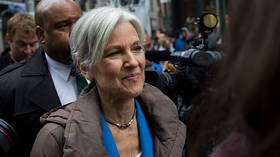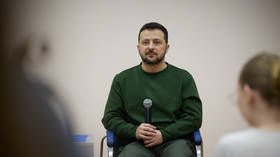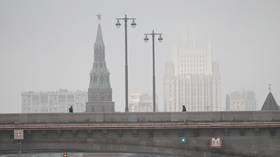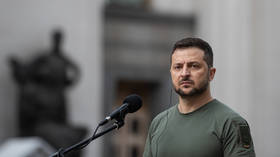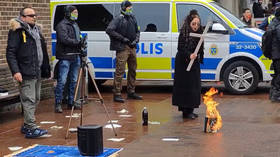Most Russians unhappy with conflict emigres – poll
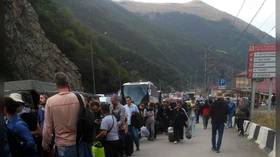
A new opinion poll has shown that almost six in ten Russians are critical of their compatriots who moved to other countries following the start of hostilities with Ukraine in February 2022.
The attitude was revealed last week by the Russian pollster Platforma as part of its survey on how citizens behave amid the escalation of tensions with its neighbor and Western nations. Researchers conducted an online survey in August and held panel discussions with three focus groups representing different age brackets.
In the online poll, people were asked whether they approved or condemned the decisions of the emigres. A full-hearted or partial condemnation was expressed by 31% and 27%, respectively, of the online poll and study groups. Approval came from just 10%, who were the most uncertain in this attitude, while 28% said their position was neutral.
Younger people and those living in large cities tended to be less critical of the so-called ‘relocants,’ but even in Moscow and St. Petersburg, almost half of those polled disfavored such a move.
The pollster noted that people tended to be less certain in their criticisms in the in-person focus groups. In many cases, the position of the ‘partially negative’ group was nearly indistinguishable from neutral. The report described it as “indifferent alienation.”
When asked what they believed motivated people to leave the country, participants of focus groups, more often than not, envisioned concerns for personal safety and well-being rather than a wish to make a political statement. According to the pollster, Russians generally don’t view the emigres as traitors.
“When you hear that someone fled the country, the instinct is to say: ‘What a coward.’ When it is your friend, a good hardworking person, who just couldn’t fight [in the conflict], I believe he did well to save his life,” one woman said during a panel discussion.
Another focus group member suggested that the Russian government had acted “too aggressively” with the partial military mobilization conducted in September last year to beef up the military amid the Ukraine conflict.
Following the announcement, some Russian citizens fled the country for neighboring states such as Kazakhstan, Kyrgyzstan, Georgia, and Armenia, none requiring a visa for visiting Russians.
According to senior officials, the government has since launched a massive recruitment campaign, with volunteers more than sufficient for the Defense Ministry’s current needs. Earlier in October, Defense Minister Sergey Shoigu said there are no plans for an additional mobilization as the military has enough troops to carry out its operation in Ukraine, thanks to a large number of volunteers. He said the overall number of those who joined the Russian Armed Forces or other voluntary units on their own accord since the start of the year exceeded 335,000 people.




